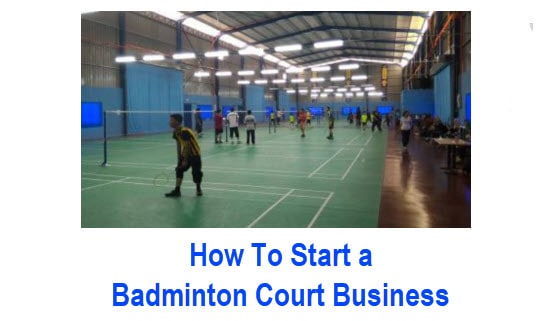How To Start an Event Planning Business – Easy Steps

Hey there,
If you were wondering,
How to start an Event Planning Business?
You are in the right place.
Starting an event planning business can be fun and exciting but requires careful planning and strategy. There’s a lot to consider, from researching the market and creating a business plan to building relationships with vendors and promoting your services. But with the right approach, you can turn your passion for planning events into a successful business.
What Is an Event Planning Business?
What is an Event Planning Business? An event planning business is a company that helps individuals or organizations plan and execute events such as weddings, conferences, parties, and more.
As an event planner, you’ll coordinate all aspects of the event, from venue selection and vendor management to design and decor, entertainment, and even transportation. It’s a role that requires a lot of attention to detail, excellent organizational skills, and the ability to think on your feet.
One of the great things about starting an event planning business is that you can plan events of all sizes and types, whether a small intimate gathering or a significant corporate event. Plus, you get to tap into your creativity and work with various people, which can be fulfilling.
But remember that event planning is not just about throwing a party. It’s a business, it’s a lot of hard work, and there’s a lot of planning, coordination, and management that goes into it.
It’s essential to have a good understanding of the industry and the market you’re entering and have a solid business plan in place. But, if you’re passionate about planning events and have the drive and determination to succeed, starting an event planning business can be a great choice.
Event Planning Business Made Easy: a Step-by-step Guide
Ready to start your own event planning business? Check out our step-by-step guide for all the tips and tricks to make it easy and stress-free.
1 – Research the Industry
Knowing the popular happenings, fields of specialization and competitors in your vicinity is fundamental to event planning. Therefore, keeping up with current trends, such as recent technologies or decorating motifs, ensures that you can provide creative options to your clients.
For instance, events like weddings, corporate gatherings, birthdays, and holidays are widely sought-after services. By remaining up-to-date on industry innovation, you guarantee that each client will receive cutting-edge ideas for their special occasion.
It is also essential to conduct in-depth research on the competition within your space. This will help you comprehend the services and prices offered by other players and figure out how to stand apart from them.
Aside from this, examining industry trends will give you a good insight into what it takes to be successful in the event planning business while assisting you with creating a robust business model.
2 – Develop a Business Plan
Constructing a comprehensive business plan with clear objectives, target markets, and financial projections is crucial for laying the foundation of any successful Event Planning Business.
This document should serve as an all-encompassing roadmap that outlines your services offered, pricing structure, and marketing strategies in detail – failing to do so can lead to costly errors further down the line.
Make sure you thoroughly go through the planning process before commencing with operations – it could be what sets your Event Planning Business apart from others.
When crafting your business plan, it is imperative to research and recognize both your target market and competitors. Think about differentiating from the competition to stand out in the marketplace.
Additionally, create a financial strategy that predicts future profits and expenses with accurate profit margins so that this roadmap will be of great assistance when obtaining funds from investors or banks.
Moreover, as time passes, use this document as an effective tool to monitor progress while making necessary changes throughout the journey.
3 – Register Your Business
Carefully selecting your business name and registering it with the relevant public body is essential in setting up a successful venture.
Depending on where you are, this may involve filing documents with either state or local government agencies and acquiring a tax ID number. As each locality has different regulations regarding businesses, researching the specific requirements that apply to your area is key when taking these steps.
When selecting a business name, ensure that the one you pick is distinctive and simple. Also, make sure that no other business has already taken this name.
Moreover, don’t forget to check if your chosen website domain name is available; having an identical web address will allow customers to locate your establishment more easily online.
Once your Event Planning Business is legally established, it’s time to open a business bank account and separate personal and corporate funds. Maintaining an organized record of all revenues/expenses will make tax filing infinitely more accessible in the long run.
Additionally, obtaining any licenses or permits required for event planning operations is paramount; get them right from the start to avoid potential legal trouble later on.
4 – Obtain Any Necessary Licenses
When it comes to organizing events, the type and location of your function might require you to have specific licenses or permits.
If alcohol is served at any point throughout your event, a liquor license may need to be obtained. Additionally, gaining permission from local authorities may also become necessary if you plan to host an event in public areas such as parks or squares.
Another type of permit is a business permit; you can operate your enterprise legally and securely. Research the requirements for your region, acquire all necessary licenses and permits, then put together events without fear of legal issues or penalties. By taking this step first, you’ll be able to set up shop worry-free.
Make sure you know the expiration dates of your licenses and permits so that they can be timely renewed. Failing to do so may result in heavy fines or penalties.
Furthermore, securing insurance for your event Planning business is essential since it will protect you and your company from accidents or mishaps at events.
Thoroughly compare the various policies until you find one explicitly tailored toward meeting your business needs.
5 – Develop a Portfolio
A portfolio is a collection of your past event planning experience that you can showcase to potential clients.
It should include pictures, testimonials, and a detailed description of the events you have planned in the past. Your portfolio will visually represent your work and help potential clients see your work’s quality and understand what you can do for them.
When creating your portfolio, you should include various events you have planned, such as weddings, corporate events, and parties. This will show potential clients that you have experience designing different occasions and can handle various other projects.
Additionally, you should include testimonials from clients in your portfolio. These testimonials will help to build credibility and trust with potential clients. They will be able to see what other clients have said about your work, which will help them decide if you are the right event planner for them.
It’s also important to note that you should update your portfolio regularly; this will show your potential clients that you are still active in the business and keeping up with the latest trends and styles in the industry.
6 – Create a Website
A website is essential for promoting your event Planning business and reaching potential clients. Your website should be professional and visually appealing and provide potential clients with detailed information about your services, portfolio, and contact information.
When creating your website, you should choose a domain name that is easy to remember and related to your business. You should also select a web hosting provider that offers reliable and fast service.
Your website should include a portfolio of your past event planning experience and detailed information about your services, such as event planning, event design, and event coordination. It should also include a contact form or email address so potential clients can quickly contact you.
Additionally, you should include a blog on your website. This will help you to connect with your potential clients and to build a community around your business.
You can use your blog to share your thoughts, ideas, and tips on event planning and to keep your clients informed about the latest trends and styles in the industry.
A professional website can make it easier for potential clients to find your business online and help you establish your brand and build trust.
7 – Setting Pricing Structure
When determining your services’ rates in the event Planning business, it’s critical to be realistic and factor in overhead costs like equipment or personnel salaries.
Additionally, it would be best if you deduced the profitability desired for your business before creating a list of customized packages for customers. When setting prices, you will remain competitive while maximizing profit potential by taking these steps into account.
You can get an idea of what’s typical by researching other local companies. At the same time, consider both the level of experience and quality of services when deciding your rates – don’t be afraid to charge higher if you have a unique portfolio that exhibits all that you have achieved in this field.
Making a list of the services and packages, you offer clients is essential. It helps them grasp their various opportunities and enables you to upsell more products. For example, present your customers with an introductory package that incorporates event planning – then supplement it with different offers such as event design and coordination to increase sales.
When planning an event, it’s essential to consider any hidden costs that could come up. Everything from transportation fees to setup and breakdown should be communicated clearly with your clients before they agree to work with you. Be sure to outline these details upfront for a smooth working process.
8 – Market your Business
One way to market your event planning business is to create a social media presence. Social media platforms such as Facebook, Instagram, and Twitter are great ways to connect with potential clients and promote your business. You can use these platforms to share pictures and information about your events, post testimonials from clients and share tips and advice on event planning.
Another way to market your business is to attend networking events and trade shows. This will allow you to meet potential clients and showcase your services. You can also join industry organizations, such as professional associations for event planners, which will give you access to resources and networking opportunities.
Advertising is a powerful method to push your business forward and gain local community visibility. Start by taking advantage of online platforms such as Google or Facebook, then explore options for printed ads like newspapers or magazines.
Don’t forget about events that allow you to promote your services directly – festivals or fairs are great examples. With these strategies, you can effectively present what makes your business unique.
Lastly, you can also consider offering referral or loyalty discounts to your existing clients to encourage them to refer their friends and family to your business.
9 – Purchasing Equipment
As an event planner, you will need various equipment to plan and execute events. This includes event planning software, cameras, and audio-visual equipment.
Event planning software can help you to organize your events and to keep track of essential details such as guest lists, timelines, and budgets. Many event planning software programs include online registration, ticketing, and vendor management features.
Cameras are not just a necessity but also a vital tool. They provide both tangible proof and creative visuals of the event that has taken place, as well as audio-visual equipment like microphones and speakers for events featuring live music or presentations.
Furthermore, research should be conducted into durable chairs, tables, and illuminating systems to ensure your guests’ comfort on any given occasion – by selecting only those items that can easily be transported from one location to another.
When investing in equipment, carefully consider the price and ensure that you obtain maximum value for your hard-earned money. Additionally, ensure that the warranty and return policy on the item meets your requirements before sealing the deal.
Acquire additional coverage for protection against any probable damage or theft of said equipment – this will give you peace of mind in knowing that you’re fully covered.
10 – Hiring Staff
As your business thrives and grows, you may need to consider employing additional help to plan successful events and deliver top-notch client services. When searching for suitable staff members, they must possess the right qualifications.
Look out for people with expertise or prior knowledge in event planning or related areas such as design and coordination; also remember those who display organization, attention-to-detail characteristics, and solid communication skills are vital assets too.
When forming your team, you should consider the financial costs associated with hiring staff – from wages and benefits to taxes. Evaluating the expenses related to training and onboarding is equally necessary.
Moreover, for your business environment to be positive and successful, they must have clear guidance on expectations and appreciation when tasks are completed skillfully; this will ensure an energetic atmosphere that encourages talented people to stay with your organization longer-term.
Having a team of professionals by your side can help you take on more significant and intricate assignments and provide immense growth opportunities for your customer base and services.
11 – Attend Networking Events
Networking events are opportunities to connect with other professionals in the event planning industry, learn about new products and services, and promote your business.
Establishing a network of contacts and developing relationships with other event planners, vendors, and venues can be invaluable assets when planning events.
Attending networking events is the best way to do this; it not only provides access to people who can help you out in a pinch but also allows you to stay current on industry trends and new technologies.
Not only will having these resources provide helpful advice for your own event planning needs, but they may even add unique elements such as design styles or cutting-edge technology components that take your projects from good to great.
Being ready is essential when attending any networking event. Before you show up, have your business cards, portfolio, and a well-crafted elevator pitch about your company. Don’t forget that listening carefully and asking questions are key components for building new relationships and deepening your understanding of the industry.
Finally, Networking events are the ideal platform to find potential clients, as you get the chance to connect with people and businesses who could be interested in your services. Such occasions allow you to show off your personality, skills, and business acumen, leaving a mark that will remain long after the event ends.
11 – Plan Events
This is the core of your business, and it’s important to be well-organized, professional, and detail-oriented. There are several vital steps that you should follow when planning events.
- The first step is to understand the client’s needs and goals. This means listening to their ideas, understanding their budget, and working with them to create a plan that meets their needs.
- The next step is to create a detailed plan, including a timeline, a budget, and a guest list. This will help you stay organized and ensure that everything runs smoothly on the day of the event.
- Next, you should work with vendors and venues to ensure all the necessary equipment and services are in place. This includes things like catering, audio-visual equipment, and decorations.
- Finally, it would help if you also were prepared to handle any unexpected issues that may arise on the day of the event. This means having a plan for dealing with emergencies and a team to address any problems.
Planning events is about coordinating details and creating a memorable and enjoyable experience for your clients. It’s essential to have a clear and detailed plan, a well-organized team, and the ability to handle any unexpected situations that might come along.
12 – Improve Skills
As an event planner, it’s crucial to stay up-to-date on the latest trends, technologies, and best practices in the industry.
One way to improve your skills is to attend workshops, seminars, and training programs. These events can provide valuable information and insights into the industry’s latest trends and best practices. You can also take online courses or read books and event planning articles to improve your skills.
Another way to improve your skills is to stay active in industry organizations. These organizations often offer training and networking opportunities and access to industry professionals who can provide valuable advice and support.
Additionally, you should also seek out mentorship opportunities; it’s a great way to learn from experienced professionals in the industry and gain new insights into the business.
Finally, you should also seek feedback from your clients and use it to improve your services. This will help you to understand what you are doing well and what you need to improve. Continuously improving your skills is essential for the success of your business and will help you to stay competitive in the industry.
13 – Get Insured
Insurance is a critical aspect of any event planning business, and it’s vital to have the right coverage to protect your business and clients.
One type of insurance you should consider is liability insurance. This type of insurance will protect you in case someone is injured, or property is damaged during one of your events. It will also cover any legal expenses that may arise in case of legal action.
Another type of insurance you should consider is errors and omissions insurance (E&O). This type of insurance will protect you if a client claims you failed to deliver on your promises or made a mistake in planning their event.
It would be best to consider insuring your equipment, such as cameras, audio-visual equipment, and other tools you may use to plan and execute events. This will protect you in case of damage or theft.
It’s also important to consider other types of insurance, such as worker’s compensation insurance if you hire staff, automobile insurance if you use a vehicle for business, and health insurance if you are self-employed.
14 – Utilize Social Media
Social media platforms such as Facebook, Instagram, and Twitter are powerful tools for promoting your business and connecting with potential clients.
When using social media, it’s crucial to create a professional and visually appealing profile. This should include information about your business, including your services, portfolio, and contact information. You should also post pictures and videos of your events, along with client testimonials.
Interacting with your followers on social media is crucial to building a community around your business and attracting new customers. Responding promptly to comments and messages while sharing appealing content that resonates with the audience will help create an engaging atmosphere where people can interact and grow their connection.
Social media platforms also offer great opportunities for advertising and reaching potential clients. You can create sponsored posts, ads, and campaigns to target specific audiences and reach more people interested in your services.
Social media platforms also offer a great way to connect with other event planners, vendors, and venues. This will help you to build your network and to stay up-to-date on the latest trends and best practices in the industry.
15 – Evaluate and Adapt your Business
As your business grows and evolves, it’s vital to regularly evaluate and adapt it to ensure its continued success.
One way to evaluate your business is to track your financial performance. This means keeping track of your income, expenses, and profit margins. This will help you to identify areas where you are doing well and areas where you need to improve.
Another way to evaluate your business is to gather feedback from clients. This can be done through surveys, questionnaires, or interviews. It will help you to understand what you are doing well and what you need to improve.
It’s also essential to stay up-to-date on the industry’s latest trends and best practices. This will help you remain competitive and offer your clients the best possible services.
Based on your evaluations, you should adapt your business to meet your client’s needs and stay competitive in the industry. This may mean updating your services, improving your marketing strategies, or investing in new equipment.
Evaluating and adapting your business is essential for the growth and success of your business. It will help you stay relevant and improve your services and customer satisfaction.
Conclusion – How to Start an Event Planning Business
Starting an event planning business may seem daunting, but it can be a rewarding and successful venture with the proper steps and a little bit of hard work. The key is to be well-prepared and organized and stay up-to-date on the latest trends and best practices in the industry.
From researching the market and creating a business plan to setting pricing structures and marketing your business, each step is essential to the success of your business. It’s also important to purchase the necessary equipment, hire staff, attend networking events and continuously improve your skills.
Remember to evaluate and adapt your business regularly. It will help you stay relevant and improve your services and customer satisfaction.
SickofTheBoss.com is the brainchild of Jack Bastide. It is designed for entrepreneurs and those that want to be. You can find Jack on Facebook or Linked-In.






